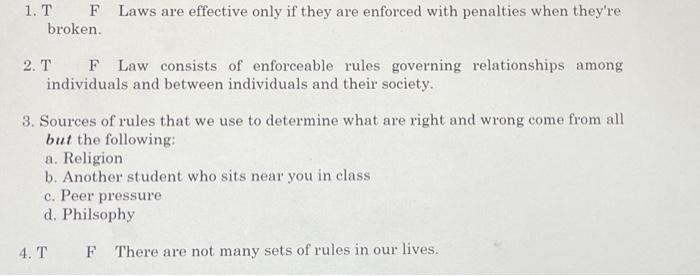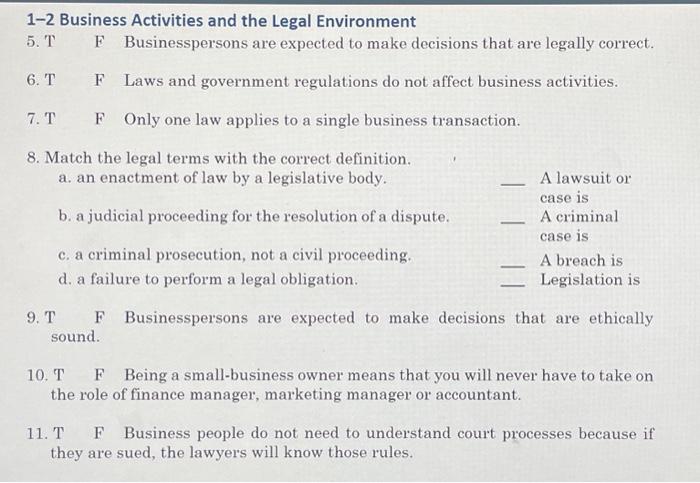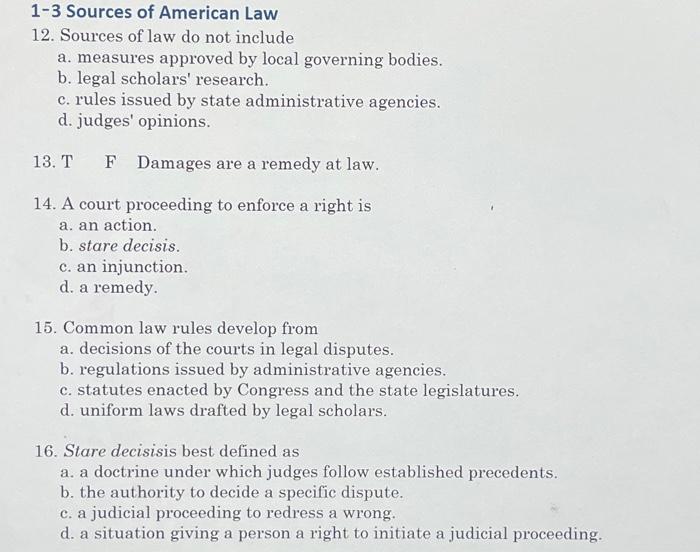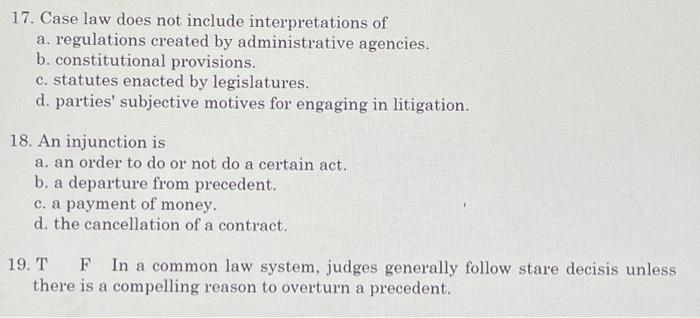1. T F Laws are effective only if they are enforced with penalties when they're broken. 2. T F Law consists of enforceable rules governing relationships among individuals and between individuals and their society. 3. Sources of rules that we use to determine what are right and wrong come from all but the following: a. Religion b. Another student who sits near you in class c. Peer pressure d. Philsophy 4. T F There are not many sets of rules in our lives. 1-2 Business Activities and the Legal Environment 5. T F Businesspersons are expected to make decisions that are legally correct. 6. T F Laws and government regulations do not affect business activities. 7. T F Only one law applies to a single business transaction. 8. Match the legal terms with the correct definition. a. an enactment of law by a legislative body. - A lawsuit or b. a judicial proceeding for the resolution of a dispute. case is A criminal case is c. a criminal prosecution, not a civil proceeding. A breach is d. a failure to perform a legal obligation. Legislation is 9. T F Businesspersons are expected to make decisions that are ethically sound. 10. T F Being a small-business owner means that you will never have to take on the role of finance manager, marketing manager or accountant. 11. T F Business people do not need to understand court processes because if they are sued, the lawyers will know those rules. 12. Sources of law do not include a. measures approved by local governing bodies. b. legal scholars' research. c. rules issued by state administrative agencies. d. judges' opinions. 13. T F Damages are a remedy at law. 14. A court proceeding to enforce a right is a. an action. b. stare decisis. c. an injunction. d. a remedy. 15. Common law rules develop from a. decisions of the courts in legal disputes. b. regulations issued by administrative agencies. c. statutes enacted by Congress and the state legislatures. d. uniform laws drafted by legal scholars. 16. Stare decisisis best defined as a. a doctrine under which judges follow established precedents. b. the authority to decide a specific dispute. c. a judicial proceeding to redress a wrong. d. a situation giving a person a right to initiate a judicial proceeding. 17. Case law does not include interpretations of a. regulations created by administrative agencies. b. constitutional provisions. c. statutes enacted by legislatures. d. parties' subjective motives for engaging in litigation. 18. An injunction is a. an order to do or not do a certain act. b. a departure from precedent. c. a payment of money. d. the cancellation of a contract. 19. T F In a common law system, judges generally follow stare decisis unless there is a compelling reason to overturn a precedent










